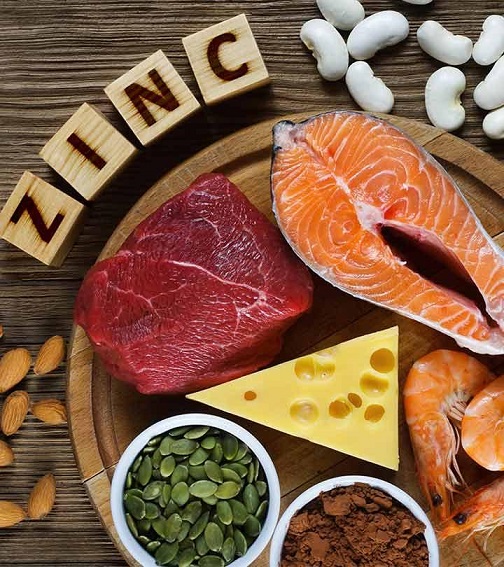By Zahra Barnes and Christine Byrne
You’ve heard about zinc before, but do you know what it does for your health?
For starters, zinc is a trace mineral, meaning you only need to consume very small quantities in order to be healthy. “Women 19 years and older need eight milligrams of zinc daily, a pregnant woman needs 11 milligrams, and a breastfeeding woman needs 12 milligrams,” says Amy Gorin, R.D.N., owner of Amy Gorin Nutrition in the New York City area.
“Zinc is so often overlooked because it occurs in really small quantities,” says Amanda Bontempo, M.S., R.D. You don’t need to consume much daily, even though it has so many benefits and profoundly affects how your body works, she adds. “But because you need so little of it, it doesn’t take more than a mild zinc deficiency to affect you.”
Zinc keeps your blood sugar stable.
Insulin is the hormone responsible for keeping your blood sugar levels stable, which means it’s super important to overall health. Zinc plays a role in the synthesis, storage, and release of insulin in the pancreas, says Gorin.
So, a zinc deficiency could negatively affect insulin levels, which can lead to negative changes in appetite and blood sugar levels.
Zinc helps your body heal.
Zinc interacts with blood platelets to help with blood clotting, so getting enough zinc is an important part of helping cuts and scrapes heal properly, says Gorin.
Still, Bontempo says healing varies from person to person, so there’s no hard-and-fast rule about how slow is too slow for something to heal. But if you see a change in how well your body bounces back from an injury, a zinc deficiency may be the culprit.
It keeps your digestion running smoothly.
“Zinc works with proteins in every organ and helps nearly 100 different enzymes with different processes, one of which is digestion,” says Bontempo.
Zinc acts as a co-factor in a lot of gastrointestinal activities, which means your body can’t digest food and absorb nutrients properly without it.
“It’s easy to mistake symptoms like nausea, vomiting, or diarrhea for something like a gluten intolerance,” says Bontempo. Instead, you might want to think about adding some zinc-rich foods, like shellfish and yogurt, to your diet.
Zinc helps you taste your food.
Since most of your taste receptors are in your nasal cavity, the two senses are inextricably linked. Zinc is crucial to fully functioning taste perception, so if you start realizing you’re not tasting or smelling things as vividly as you used to, it may be because you have low zinc levels.
This symptom takes gradual hold and can be subtle, so the best way to catch it is by engaging in mindful eating, says Bontempo.
Zinc might help you pay attention.
While it’s not conclusive yet, Botempo says research has shown that your zinc levels may affect how long you’re able to sit and concentrate.
“Researchers saw behavioral changes when people with deficiencies ate zinc-rich food items,” she says. “No specific mechanisms have been identified for low zinc causing impaired attention—but the correlation is there.”
Zinc keeps your metabolism going strong.
“Zinc helps metabolize protein, carbs, and fat,” says Bontempo. “When you don’t have enough, you can experience reduced energy, and sluggishness.” You might also have a harder time losing weight.
Just remember: Don’t load up on supplements if you have any of these symptoms of a zinc deficiency. “Since you need so little zinc, it’s easy to overdose and see negative effects,” says Bontempo. Instead, just eat more zinc-rich foods, like legumes, nuts, and seeds to help see the benefits of zinc





